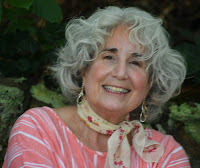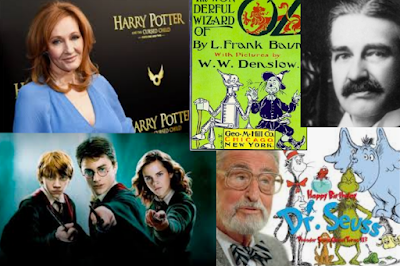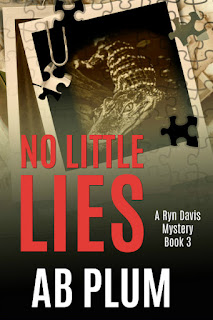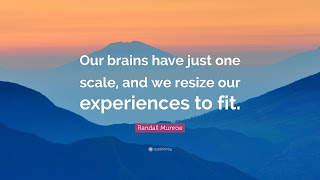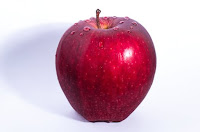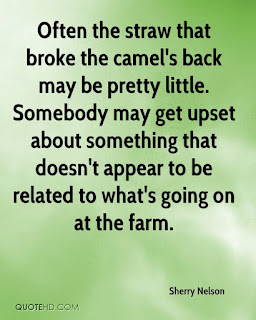Existing While Brown or Black in America
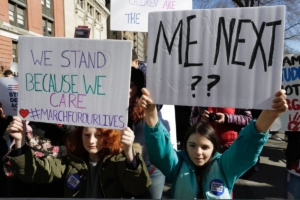 Existing While Brown or Black in America by Linda Rodriguez
Existing While Brown or Black in America by Linda Rodriguez
In all the turmoil around #BlackLivesMatter and the extrajudicial killings of Black men and women by police right now, I notice the inevitable outcries from parts of the White community that the police wouldn’t shoot and kill these people for nothing, that they must have brought it on themselves in some way by their own lawless behavior. Perhaps. But when we have stringent, trustworthy investigations, again and again we find that these people did nothing so major that it would have warranted taking their lives. Still, to many White, middle-class people who are never hassled and threatened by police as they move through daily life, it seems that surely all these unarmed African American, Latino, and Native men killed by police every year must have brought it on themselves through some fault of their own.
So, allow me to tell a little story from my own life. In Kansas City, Missouri, where I live, the police used to be as undisciplined and out of control as some of the worst of police forces we’ve recently seen. A crisis finally forced the city to crack down, bring in a strong police chief to rebuild the force, and reorganize the police force around the motto of “Protect and Serve.” It never became a perfect police force, of course, but for a while it was plagued by less racial profiling and unnecessary civilian deaths than most urban forces today before lamentably reverting to its old forms.
Back in the 1970s when Kansas City’s force was so much like the departments we’re seeing on the news right now, pointing loaded rifles and screaming obscenities and death threats at unarmed demonstrators and reporters, I lived with my late first husband, Michael Rodriguez. Mike was a decorated veteran of Vietnam, married to me with two little kids, working a white-collar, full-time job as manager of a printing supply company branch, going to college at night, and the most non-violent and non-criminal person anyone could imagine. He went through some of the worst fighting in Vietnam as a medic, refusing to carry ammunition in his sidearm because he could not bring himself to kill anyone.
A fire station stood on the corner of the block where his company offices were, and several of the firefighters who were also Vietnam veterans had made friends with him since this was when no one in this country wanted to hear what these guys had gone through. This fact later saved his life.
One cold evening in winter when twilight came early, Mike was the last one out of his office, as usual, since he locked up at night and opened up in the mornings. He found his car’s battery had died and called a cab to come take him home. While he stood outside his own offices, long-haired but dressed in a business suit, waiting for his cab to arrive, two policemen pulled up, got out of their police cruiser, and started harassing him. They shoved him back and forth between them, called him racial slurs, searched him, and found nothing but his wallet, keys, and a tube of prescription ointment for psoriasis in his pockets. One then told the other, “We could shoot this motherfucker and say we thought that tube was a gun.” Kansas City police had just shot a fourteen-year-old African American boy three days before, claiming they thought the comb in his pocket was a gun—and they got away with it.
Mike thought he would die on that spot, leaving me a young widow with a baby and a toddler and no way for his kids or anyone to know that he had never done anything to deserve it. His firefighter friends had seen what was happening, however, and came out calling his name and asking what was going on and if he needed help. The cops told them to go away, but the firefighter veterans stood there watching and witnessing until Mike’s cab came, and he got safely away. Clearly, they saved his life that night.
If you talk with people of color, you will hear story after story like this. A friend of mine who is a White mystery writer married to an African American (extremely successful) artist just went out and bought all new dress business suits for her husband who, like most artists, normally wears jeans and T-shirts to work in, in the hopes that this will keep the New York City police from stopping and harassing him as he must travel through her city from home to his workplace and back. He must dress up for the commute, only to change into jeans and T-shirt at work, and then reverse the process to go home. White people don’t face this kind of treatment by law enforcement in their own lives, and it sounds so crazy and unreal to them that they assume people of color are exaggerating or making it up out of whole cloth, understandably, but this kind of harassment, threat, and fear is a part of daily life in communities of color all over this country.
Racism is a horrible and unjust fixture of American life, but just because you are White does not mean that you are safe from its destructive consequences. If allowed to flourish openly and unchecked, it won’t stop with communities of color. With the rising militarization of the police forces of large cities and small towns, I would caution my White friends to learn from our experiences. If this kind of behavior is allowed to continue and grow, it will eventually overflow into the White communities, beginning with poor and working-class communities and eventually moving up the socioeconomic ladder. It’s a matter of power and control, even beyond the matter of race and ethnicity.
Whether we know it or not, all of us in the United States have a vested interest in this situation of extrajudicial killings by police forces. Americans need to have a thorough reorganization of every police force in this country. We also need a national discussion of the growing militarization of our police departments, large and small, and what we as citizens want to do about this growing threat. The stakes in this situation are high, and the costs of failure for us as a nation and individually will be unimaginably horrific.
Linda Rodriguez’s 13th book, Unpapered: Writers Consider Native American Identity and Cultural Belonging, was published in May 2023. She also edited Woven Voices: 3 Generations of Puertorriqueña Poets Look at Their American Lives, The World Is One Place: Native American Poets Visit the Middle East, The Fish That Got Away: The Sixth Guppy Anthology, Fishy Business: The Fifth Guppy Anthology, and other anthologies.
Dark Sister: Poems was a finalist for the Oklahoma Book Award. Her three earlier Skeet Bannion mystery novels—Every Hidden Fear, Every Broken Trust, Every Last Secret—and earlier books of poetry—Skin Hunger and Heart’s Migration—received critical recognition and awards, such as St. Martin’s Press/Malice Domestic Best First Novel, International Latino Book Award, Latina Book Club Best Book of 2014, Midwest Voices & Visions, Elvira Cordero Cisneros Award, Thorpe Menn Award, and Ragdale and Macondo fellowships. She also published Plotting the Character-Driven Novel, based on her popular workshop. Her short story, “The Good Neighbor,” published in Kansas City Noir, was optioned for film.
Rodriguez is past chair of the AWP Indigenous Writer’s Caucus, past president of Border Crimes chapter of Sisters in Crime, founding board member of Latino Writers Collective and The Writers Place, and a member of International Thriller Writers, Native Writers Circle of the Americas, Wordcraft Circle of Native American Writers and Storytellers, and Kansas City Cherokee Community. Learn more about her at http://lindarodriguezwrites.blogspot.com or follow her on Twitter at https://twitter.com/rodriguez_linda or on Mastodon at https://mastodon.social/rodriguez_linda.

